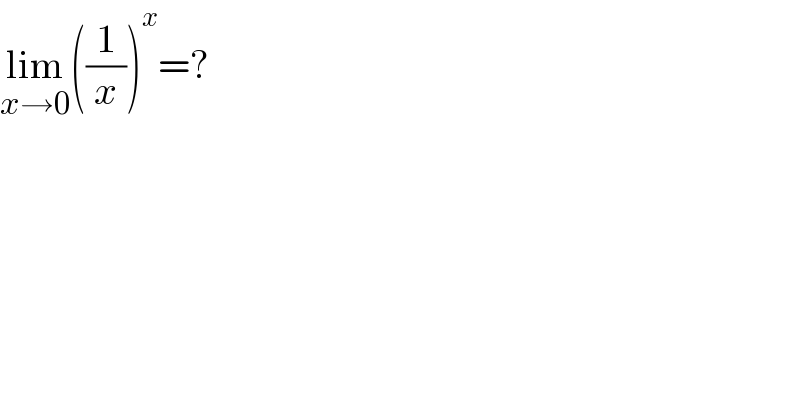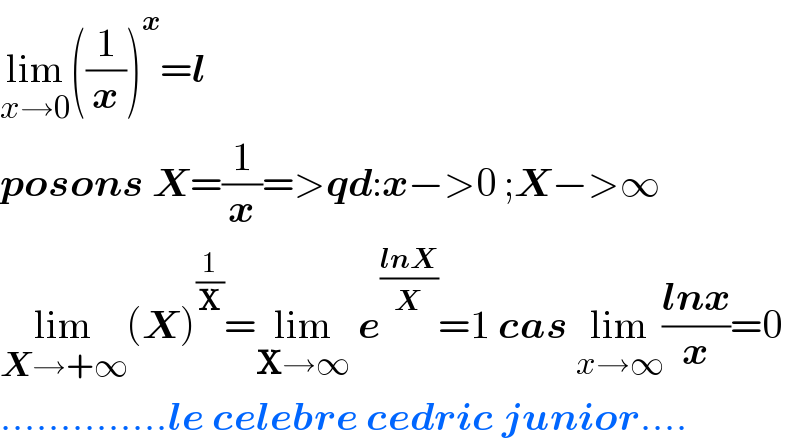
Question Number 180139 by Khalmohmmad last updated on 07/Nov/22

$$\underset{{x}\rightarrow\mathrm{0}} {\mathrm{lim}}\left(\frac{\mathrm{1}}{{x}}\right)^{{x}} =? \\ $$
Commented by CElcedricjunior last updated on 07/Nov/22

$$\underset{{x}\rightarrow\mathrm{0}} {\mathrm{lim}}\left(\frac{\mathrm{1}}{\boldsymbol{{x}}}\right)^{\boldsymbol{{x}}} =\boldsymbol{{l}} \\ $$$$\boldsymbol{{posons}}\:\boldsymbol{{X}}=\frac{\mathrm{1}}{\boldsymbol{{x}}}=>\boldsymbol{{qd}}:\boldsymbol{{x}}−>\mathrm{0}\:;\boldsymbol{{X}}−>\infty \\ $$$$\underset{\boldsymbol{{X}}\rightarrow+\infty} {\mathrm{lim}}\left(\boldsymbol{{X}}\right)^{\frac{\mathrm{1}}{\boldsymbol{\mathrm{X}}}} =\underset{\boldsymbol{\mathrm{X}}\rightarrow\infty} {\mathrm{lim}}\:\boldsymbol{{e}}^{\frac{\boldsymbol{{lnX}}}{\boldsymbol{{X}}}} =\mathrm{1}\:\boldsymbol{{cas}}\:\underset{{x}\rightarrow\infty} {\mathrm{lim}}\frac{\boldsymbol{{lnx}}}{\boldsymbol{{x}}}=\mathrm{0} \\ $$$$..............\boldsymbol{{le}}\:\boldsymbol{{celebre}}\:\boldsymbol{{cedric}}\:\boldsymbol{{junior}}.... \\ $$
Answered by puissant last updated on 09/Nov/22

$$=\underset{{x}\rightarrow\mathrm{0}^{+} } {\mathrm{lim}}\:{e}^{−{xlnx}} \:=\:{e}^{\mathrm{0}} \:=\:\mathrm{1}. \\ $$
